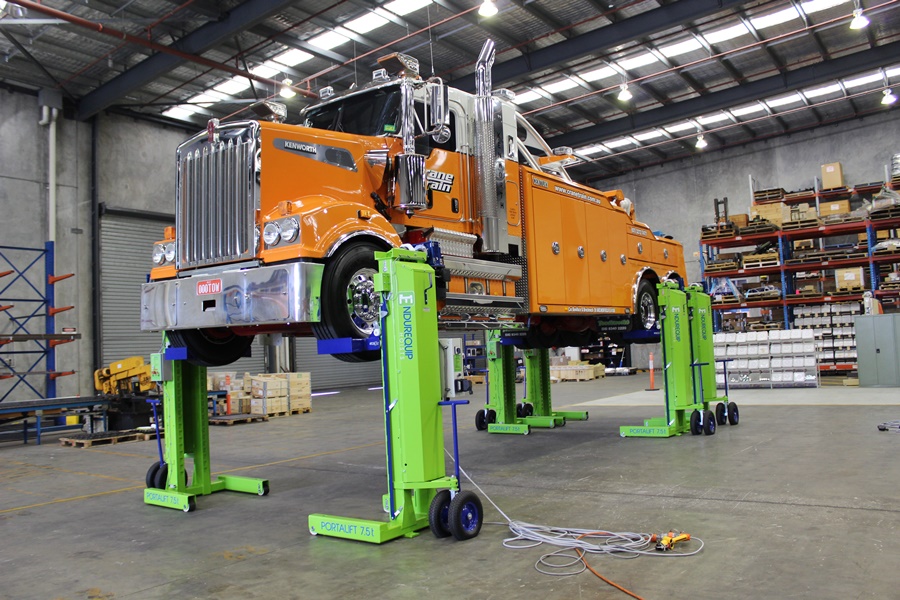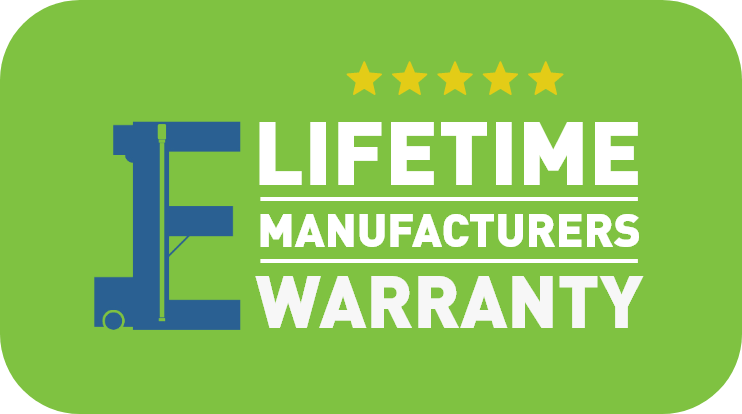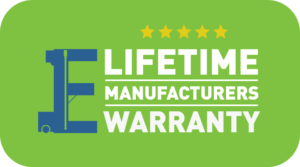
The transition to electric vehicles (EVs) is rapidly transforming the transportation landscape, and the impact extends beyond passenger cars. Heavy-duty vehicles like trucks and buses are also going electric, bringing significant changes to the way they are maintained and repaired.
Electric Vehicles are also changing the revenue stream of workshops with fewer oil changes and seasonal inspections. In addition, EVs can be heavier than their diesel counterparts because of the significant weight of the battery, resulting in higher tyre wear rates. Electric Vehicles (EVs) can wear out tyres up to 30% faster than traditional diesel vehicles, making the need for tyre replacements more frequent.
This article explores how electric trucks and buses will change the operations of mechanical trucks and bus workshops. It also focuses on the challenges and opportunities presented by the unique undercarriage design and the adaptation required to lift these heavy vehicles.
A New Era of Service:
The transition to electric vehicles requires mechanical workshops to adapt their skillsets and equipment to cater to this new technology. Governments and councils across Australia are offering courses and support to mechanics to transition to electric vehicles. NSW is planning to phase out diesel buses by 2030, while the ACT Government procured the first zero-emission buses last year. Brisbane Council is working with the Queensland Government to introduce their Zero Emission Vehicle Strategy by introducing zero-emission buses starting in 2025.
While the core principles of mechanical maintenance remain the same, electric trucks and buses introduce distinct elements that necessitate adjustments in workshop operations.
High-voltage systems: Servicing electric vehicles necessitates specialised training and safety protocols to handle high-voltage (HV) batteries and electric motors. Technicians must be certified and equipped with appropriate compliance requirements to work safely with these components.
Diagnostic Tools:
Traditional diagnostic tools used on internal combustion engine vehicles are not suitable for EVs. Workshops need to invest in specialised diagnostic equipment and software specifically designed for electric powertrains.
Focus on Preventative Maintenance:
Unlike internal combustion engine vehicles with regular component wear and tear, electric vehicles experience less frequent mechanical issues. However, preventative maintenance becomes crucial to ensure optimal battery health and performance. Workshops will need to develop specialised service packages and schedules tailored to electric vehicles.
The Undercarriage Challenge: Mobile Column Hoists and Electric Vehicles
One of the most significant challenges posed by electric trucks and buses lies in their undercarriage design. Unlike traditional vehicles with engines and fuel tanks located beneath the driver's cabin, electric vehicles house their battery packs under the vehicle floor, impacting the feasibility of using lifting equipment with tyres. This is particularly relevant to mobile column lifts, which need to be modified with adaptors to be used with both electrical and diesel engine vehicles.
Some of the Challenges for Mobile Column Lifts are:
Limited access points: The placement of battery packs underneath the chassis can restrict access to the tyres with mobile column hoists. This requires a careful selection of lifting points to ensure safe and stable lifting without compromising the integrity of the battery pack or other vital components.
Weight distribution: The weight distribution of electric vehicles differs from diesel vehicles due to the placement of heavy batteries. Workshops need to ensure the hoist configuration can handle the specific weight distribution of the electric vehicle being serviced, maintaining proper stability during the lifting process.
Lifting point adaptors: Depending on the specific vehicle model and lift design, workshops might need to invest in specialised lifting point adaptors to ensure proper contact and distribution of lifting force while avoiding damage to the undercarriage or battery pack.
Embracing the Change: Opportunities for Workshops:
Despite the challenges, the transition to electric vehicles also presents opportunities for workshops to adapt and thrive:
Invest in specialised tools and equipment: Workshops can invest in specific tools and equipment designed for servicing electric vehicles, such as high-voltage diagnostic tools, battery management systems, and lifting adaptors. This allows them to offer comprehensive services for the growing electric vehicle fleet.
Develop new service packages: By offering specialised preventative maintenance and repair services tailored to electric vehicles, workshops can attract new customers and differentiate themselves from competitors.
Upskill workforce: Training existing technicians and recruiting personnel with expertise in electric vehicle technology is crucial to ensure a skilled workforce capable of servicing these vehicles safely and efficiently.
Conclusion:
The transition to electric trucks and buses requires significant adjustments from mechanical truck and bus workshops. While mobile column hoists face challenges due to the different undercarriage designs of electric vehicles, proactive workshops can adapt by investing in specialised tools, developing new service offerings, and upskilling their workforce. By embracing the change and staying at the forefront of technological advancements, workshops can ensure they are well-positioned to thrive in the evolving transportation landscape.
Without Trucks, Australia Stops! But when trucks need to go, Endurequip keeps them going!
If you want to know how the team at RUD can help you, please call 07 3809 1300 or fill out an enquiry form here.
Fill out our easy form and we will be in touch soon with a tailor made quote.


I value the simplicity of design and ease of maintenance. Unlike other complicated electronic hoists on the market, the Portalift hoist are simple to service, with spare parts easy to get. This is important when you need your hoists to keep operating with minimum disruption. Portalift hoists are an asset to any workshop, heavy duty and reliable.
